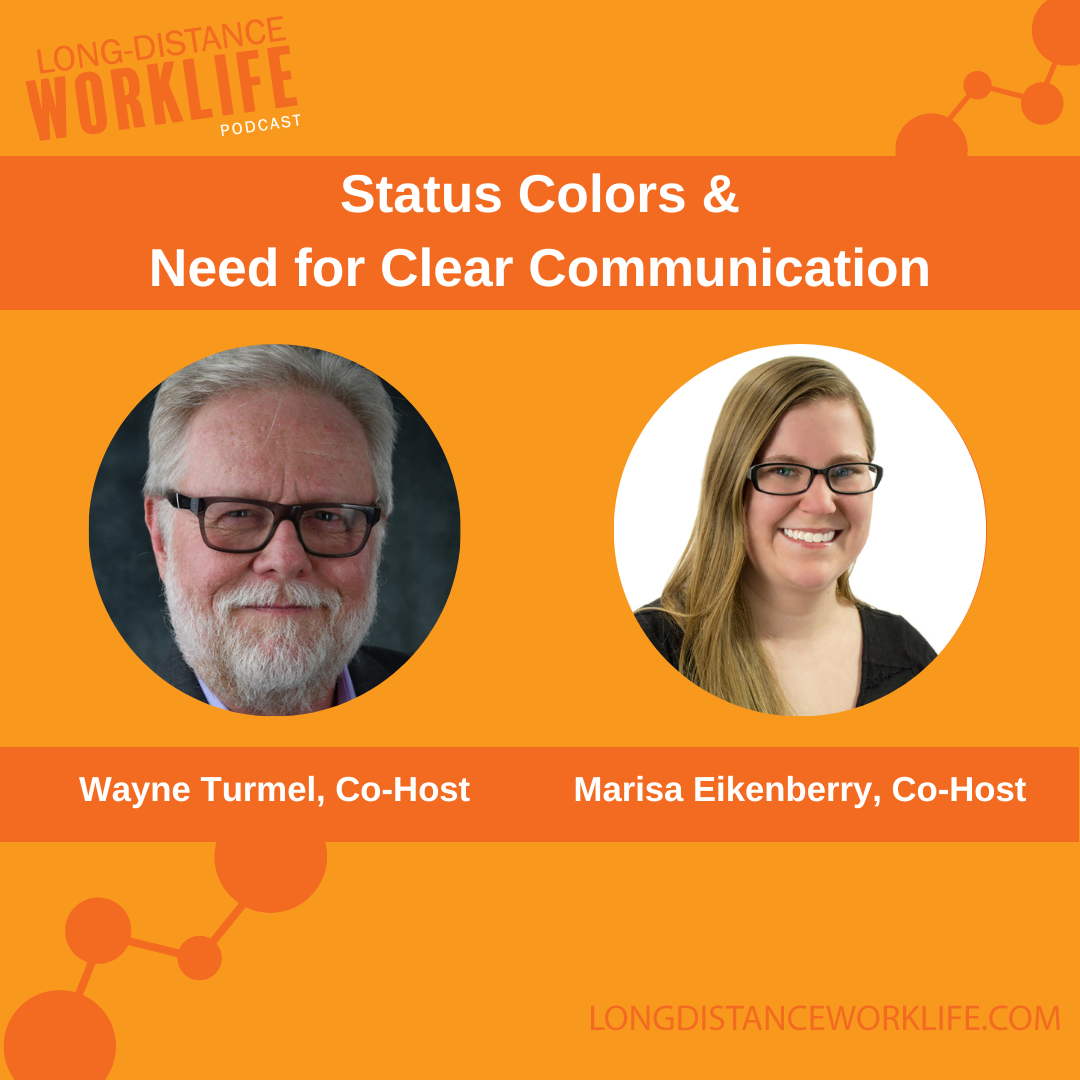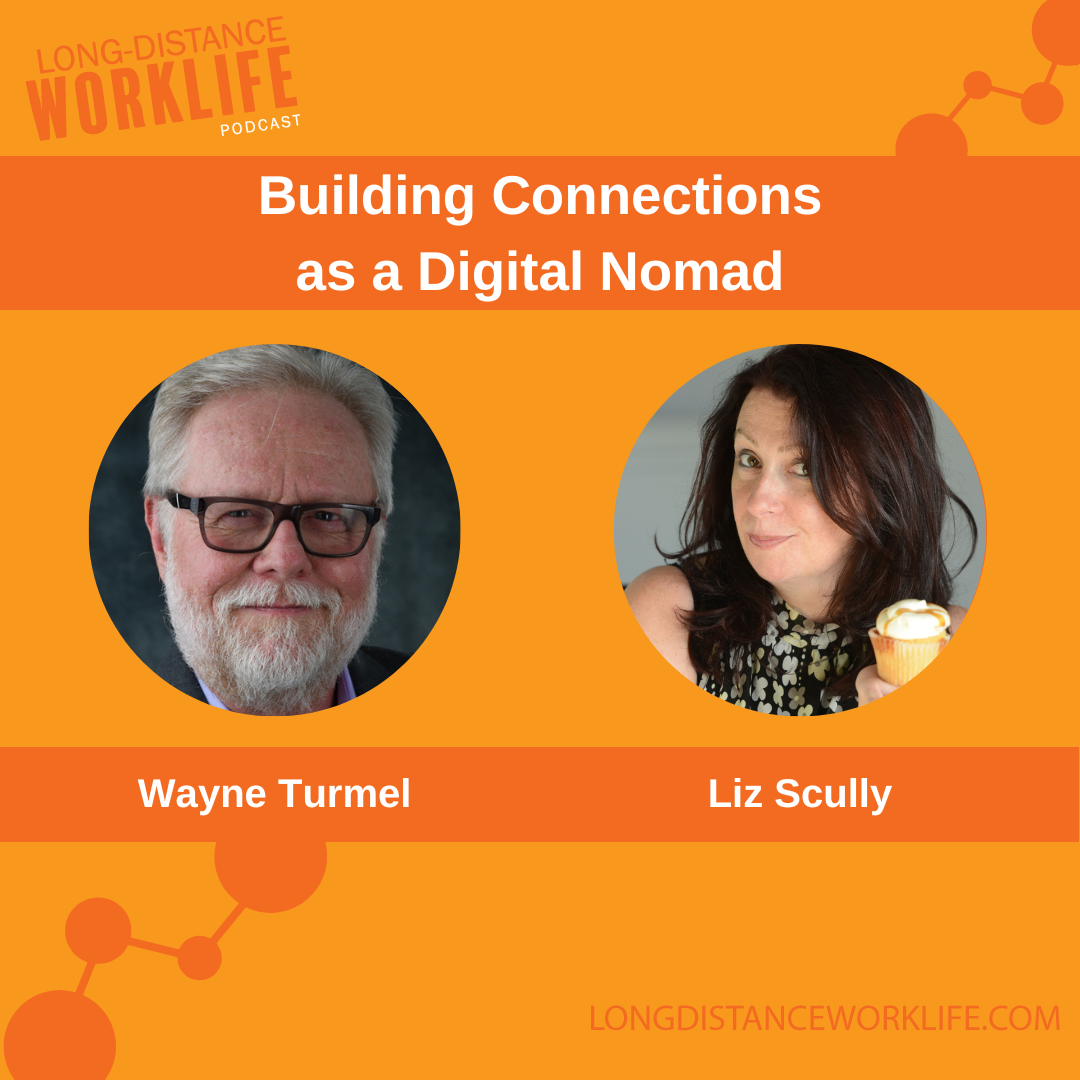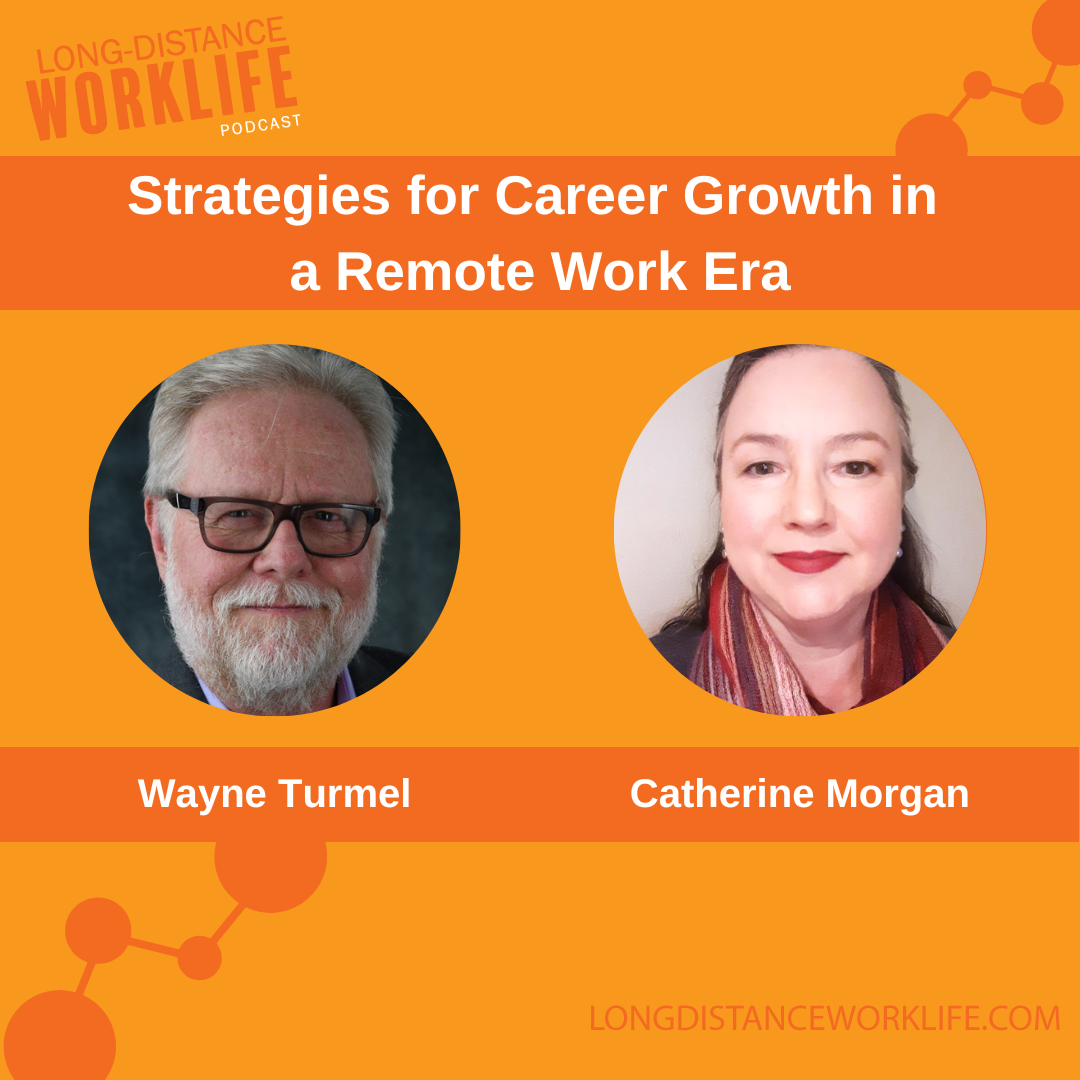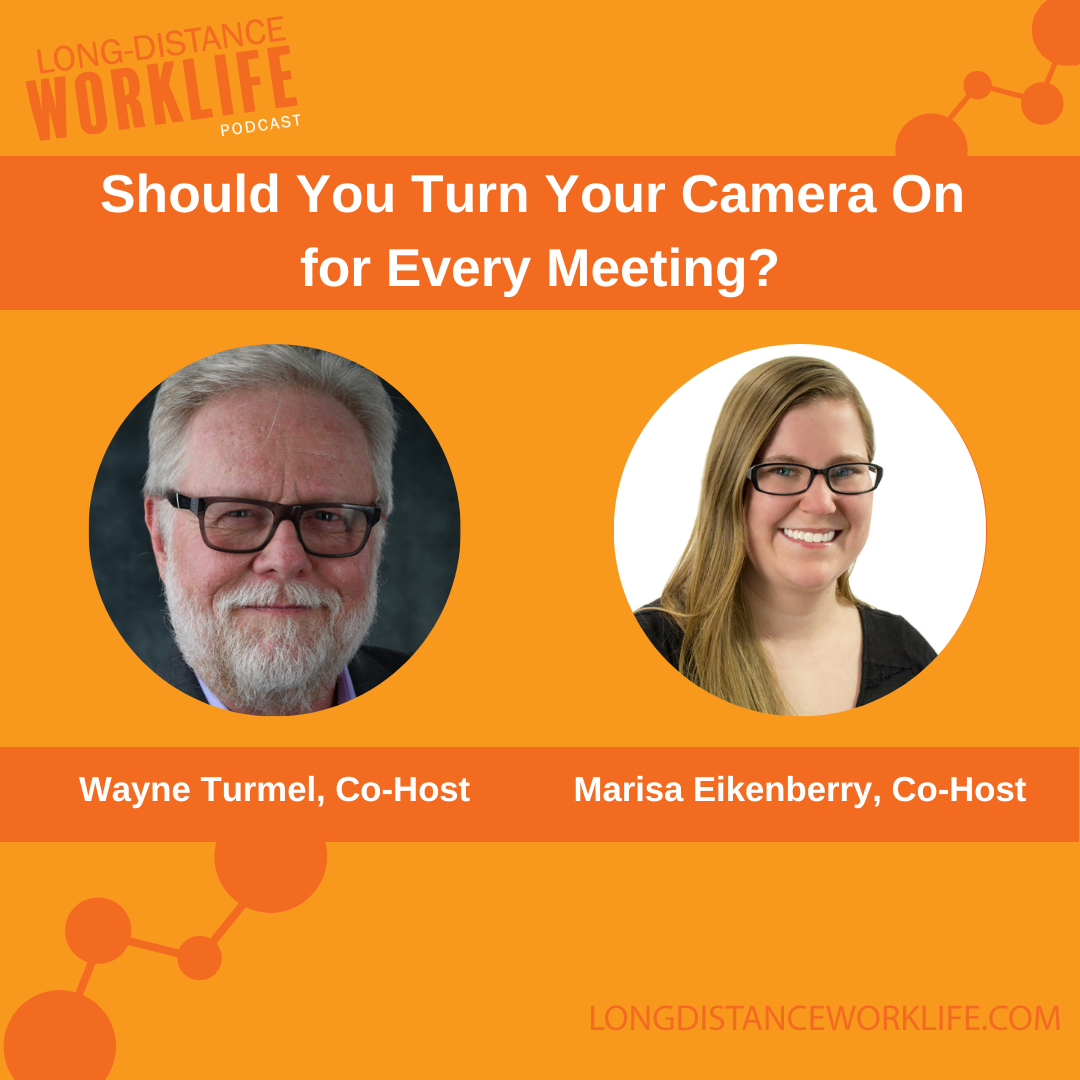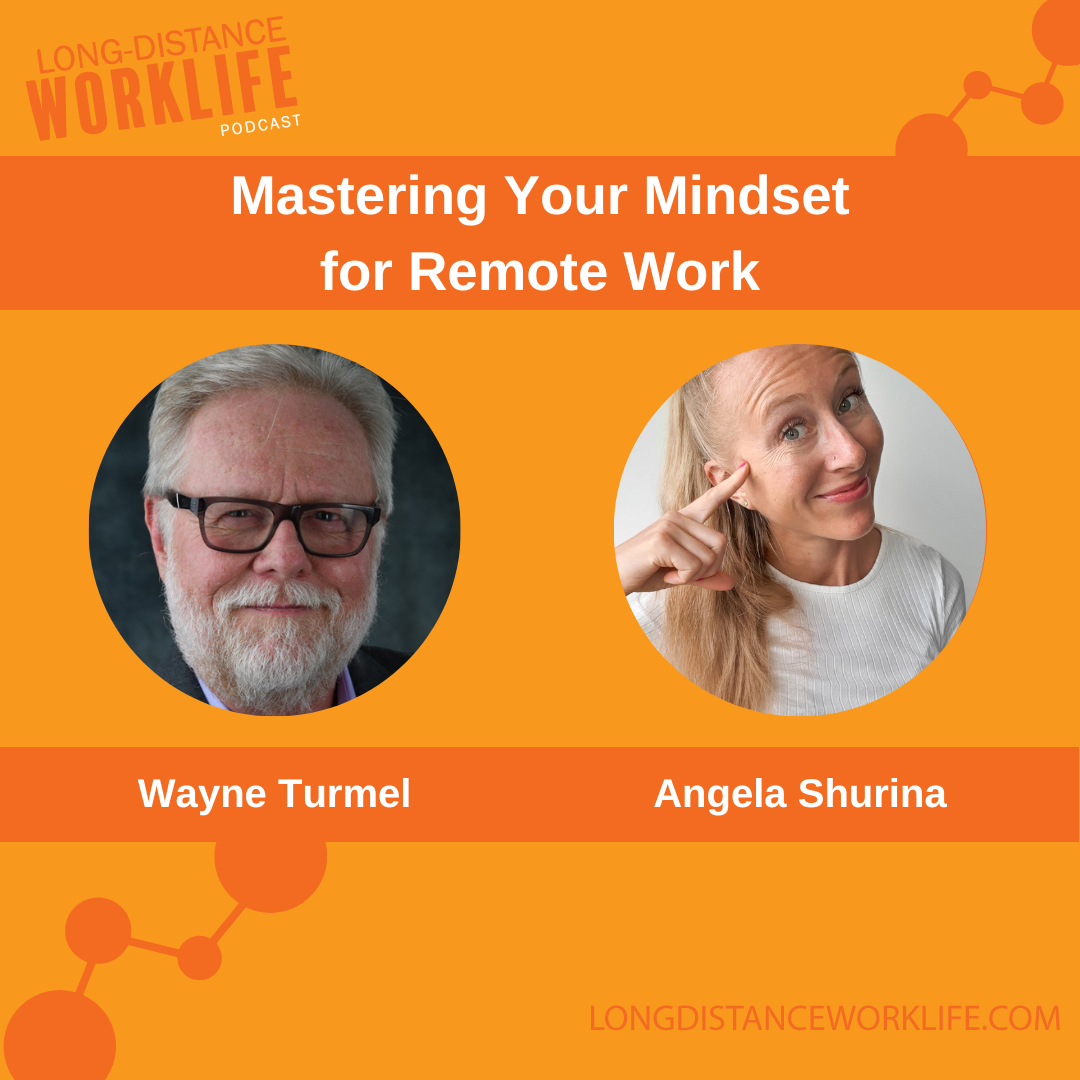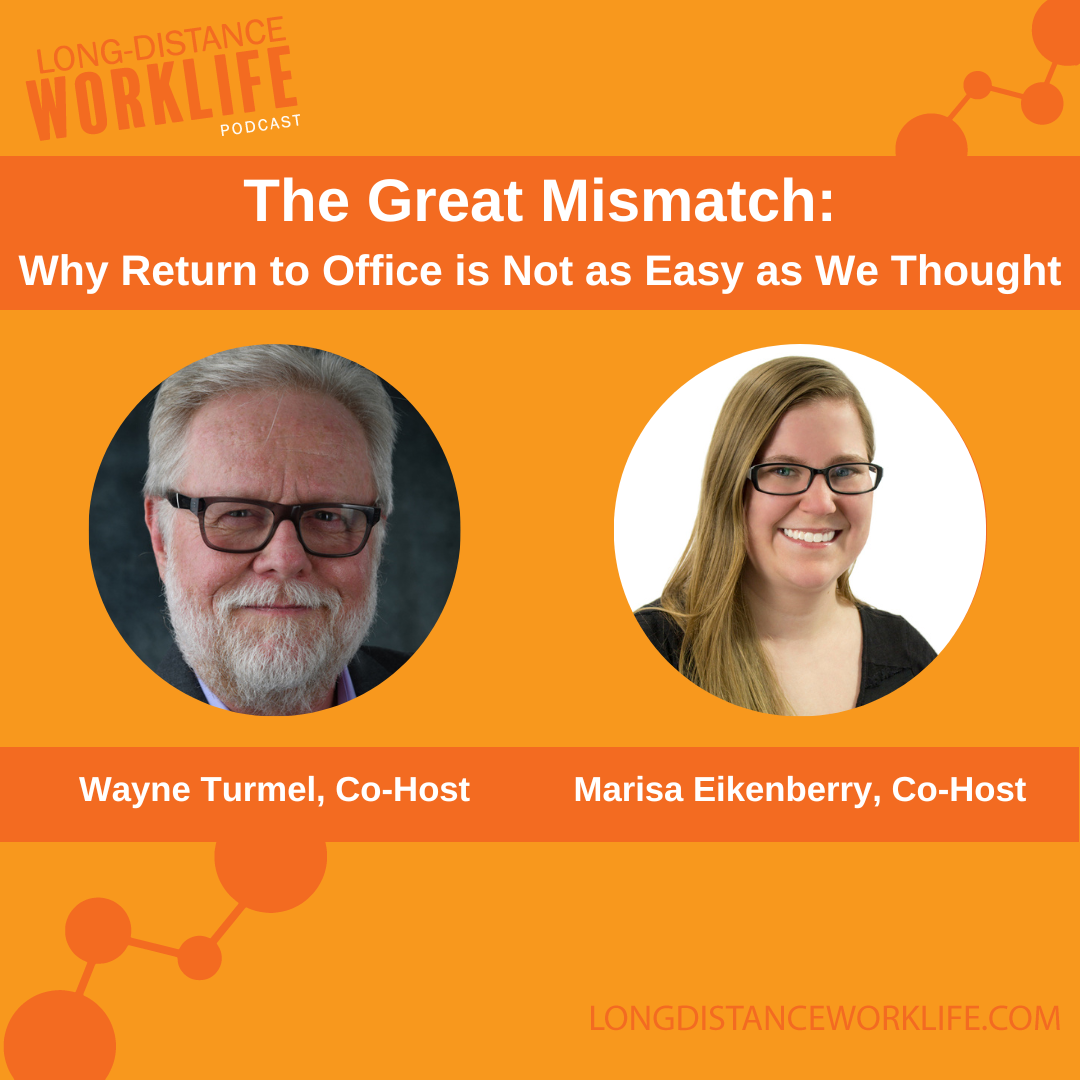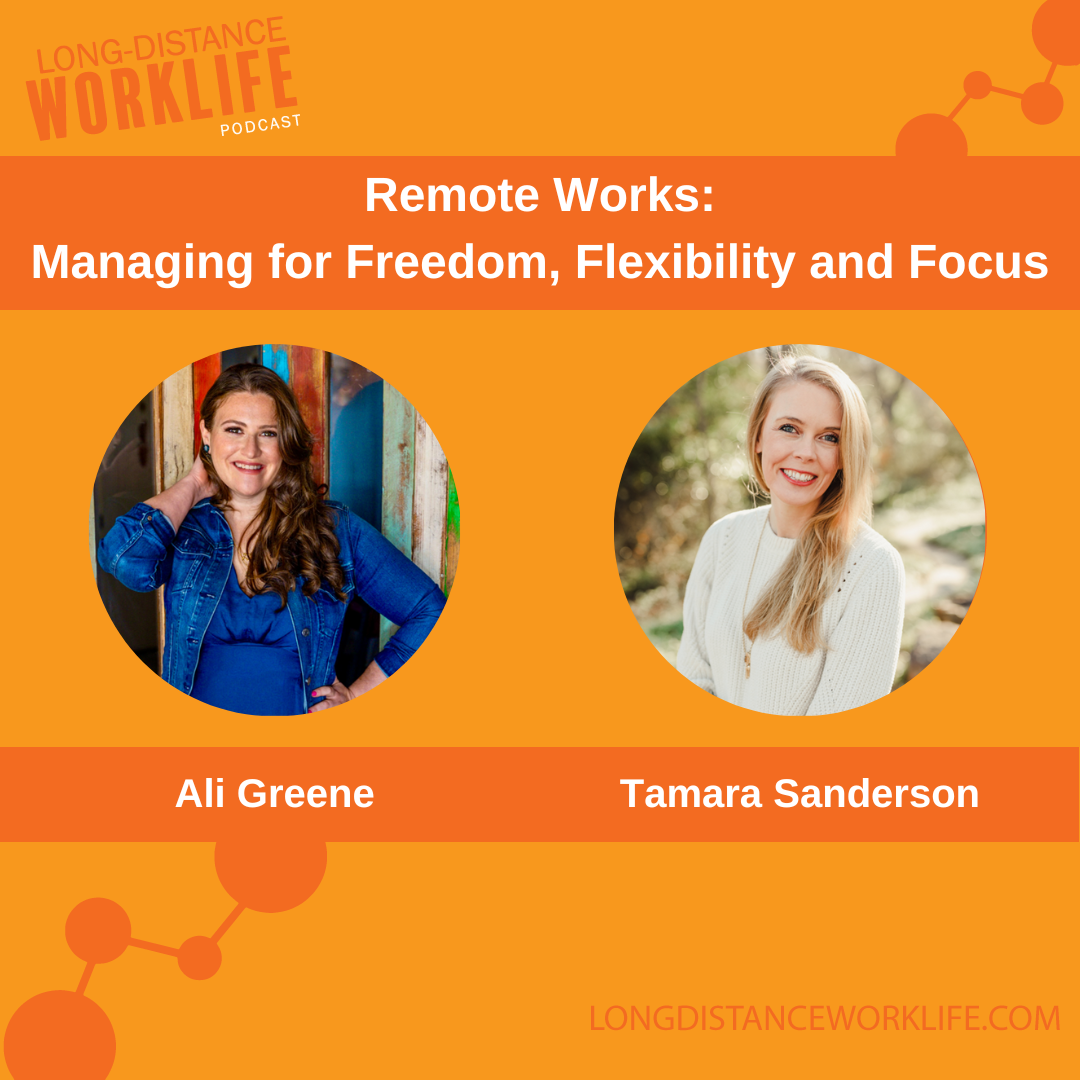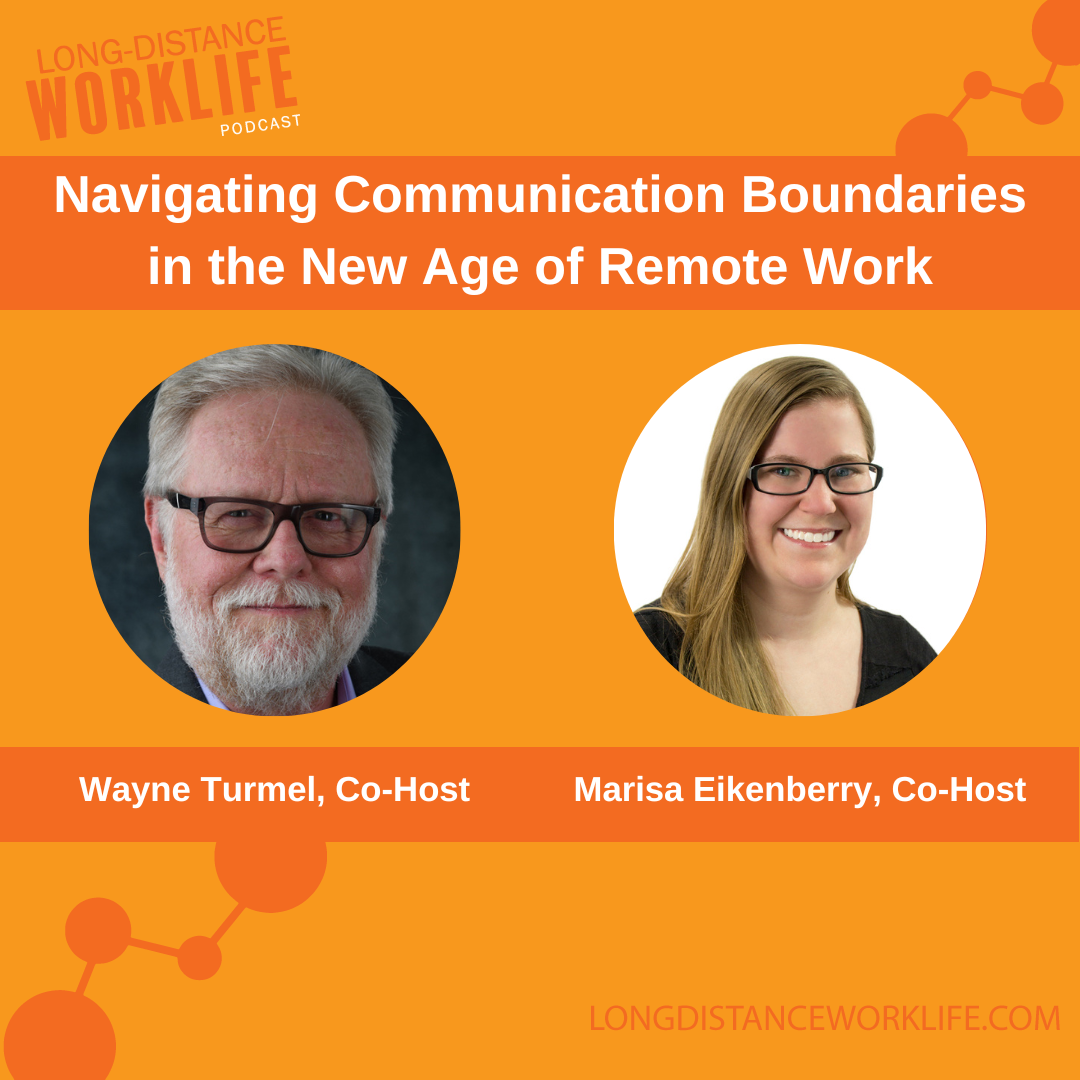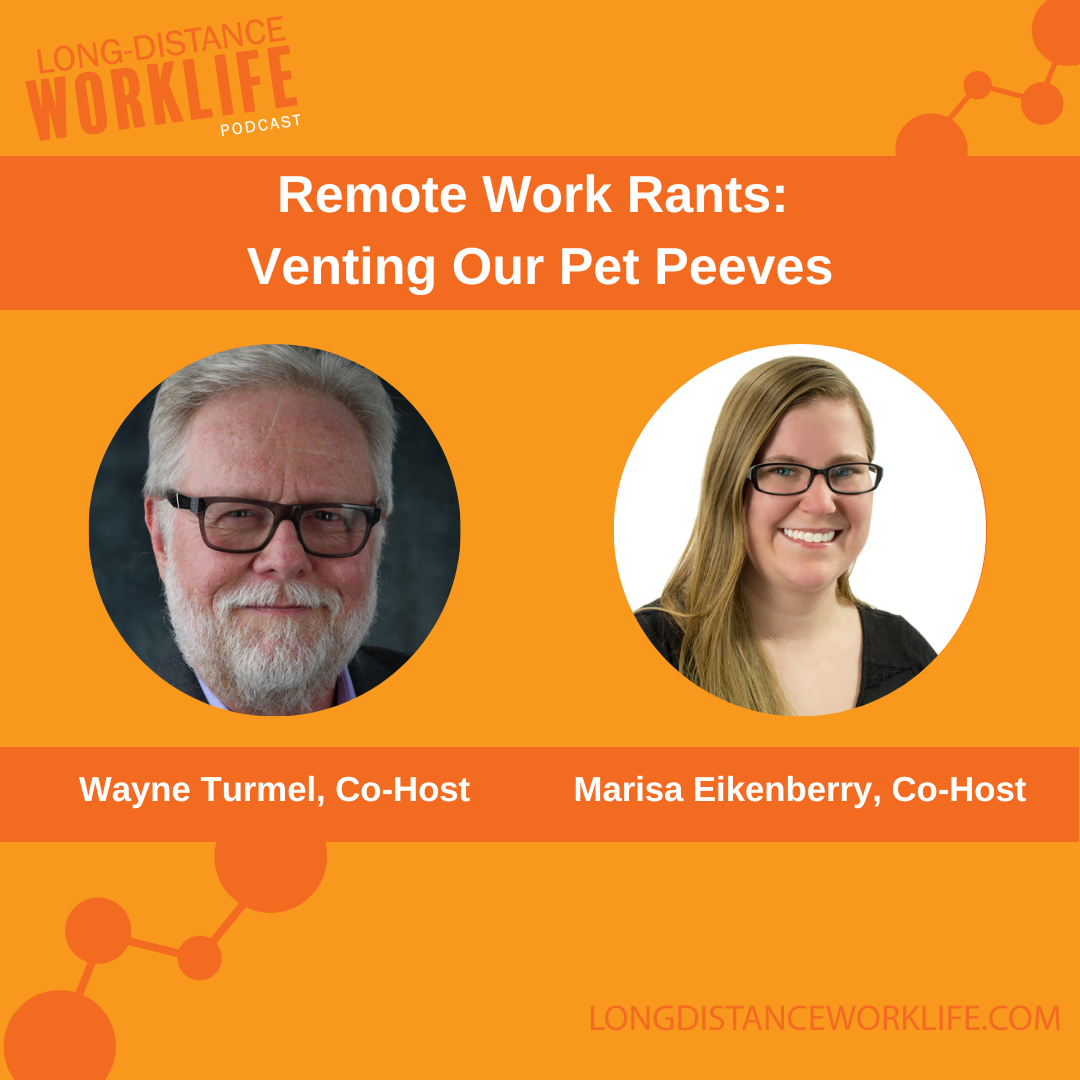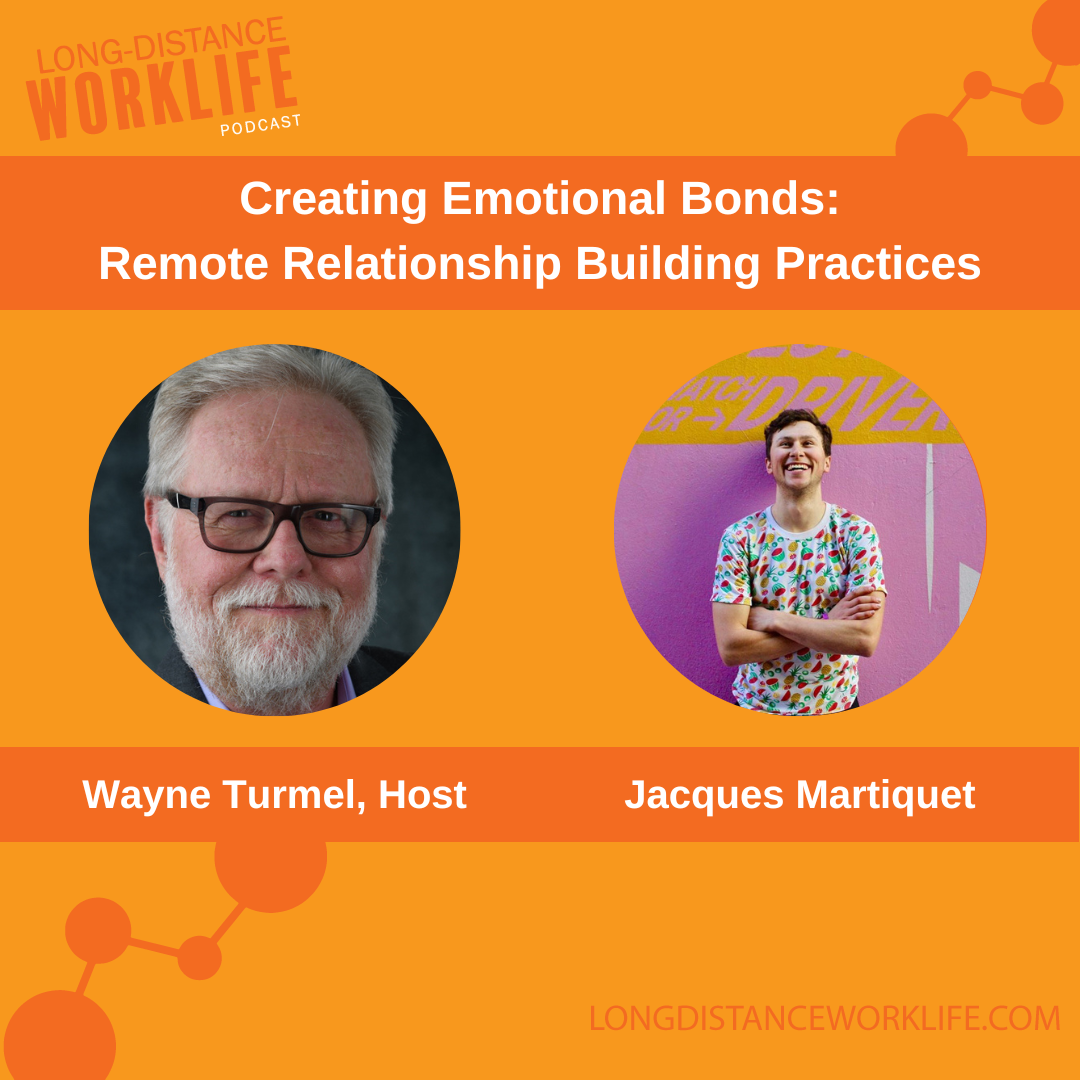Marisa and Wayne are back sharing your pet peeves. They explore the importance of maintaining professional environments during video calls and emphasize the significance of AV hygiene and user experience. They also delve into the intriguing topic of status colors on platforms like Slack, uncovering the obsession some individuals have with constantly monitoring their teammates' online presence. Marisa and Wayne provide insights into the challenges of remote work etiquette and team dynamics, ultimately aiming to foster more productive and harmonious remote work environments. Tune in to relate, vent, and discover ways to overcome these common frustrations of the remote work life.
Key Takeaways
1. Respect the Environment: When taking video meetings, be mindful of your surroundings and ensure they are suitable for a professional setting. Avoid background noise and distractions that can hinder the experience for others on the call.
2. AV Hygiene and UX: Consider the audio and visual aspects of your video meetings. Use headsets to minimize external noise and echo, and be aware of how your actions and behaviors impact others on the call.
3. Reflect on Your Actions: Take a moment to think about how your behavior and actions may affect your teammates. Be responsive, professional, and considerate of others' time and attention during video calls.
4. Status Colors and Trust: Constantly monitoring and obsessing over your teammates' online status colors can create unnecessary mistrust. Instead, focus on clear communication and understanding expectations for availability and response times.
5. Open Communication and Feedback: Engage in open conversations with your teammates about what is considered appropriate behavior and communication in your remote work environment. Be receptive to feedback and willing to address any concerns.
6. Don't Sweat the Small Stuff: While certain behaviors and distractions can be annoying, it's important not to let them overshadow the bigger picture. Prioritize effective collaboration, productivity, and respect within your remote or hybrid team.
7. By fostering a culture of respect, clear communication, and understanding, you can create a more harmonious and productive remote work environment.
Timestamps
00:00 Introduction
01:06 Video Meetings in Unsuitable Environments
04:17 Motion sickness and distractions during video calls
08:28 Importance of professionalism and respect in remote work
09:29 Constantly monitoring teammates' status colors
11:40 Obsession with status colors and issues of mistrust
16:05 Finding common ground through shared pet peeves
17:10 Conclusion
Related Episodes
Additional Resources
- Learn more about Wayne Turmel
- Email Wayne Turmel
- Connect with Wayne Turmel on LinkedIn
- Learn more about Marisa Eikenberry
- Email Marisa Eikenberry
- Connect with Marisa Eikenberry on LinkedIn
- Purchase a copy of The Long-Distance Leader
- Purchase a copy of The Long-Distance Teammate
- Purchase a copy of The Long-Distance Team
- The Kevin Eikenberry Group
Order The Long-Distance Team
Remote leadership experts, Kevin Eikenberry and Wayne Turmel, help leaders navigate the new world of remote and hybrid teams to design the culture they desire for their teams and organizations in their new book!

00:00:07:22 - 00:00:18:22
Marisa Eikenberry
Welcome back to Long-Distance Worklife where we help you lead, work, and thrive on remote and hybrid teams. I'm Marisa Eikenberry, fellow remote worker, and joining me is my co-host and remote work expert Wayne Turmel. Hi, Wayne.
00:00:19:00 - 00:00:23:20
Wayne Turmel
And it is indeed a lovely day. Hi, Marisa.
00:00:23:21 - 00:00:32:23
Marisa Eikenberry
So today we're going back into even more pet peeves. We still have a bunch that you guys have sent us. And please keep sending us these.
00:00:33:01 - 00:00:37:07
Wayne Turmel
Can I tell you how much I enjoy hearing what makes people crazy?
00:00:37:09 - 00:00:38:10
Marisa Eikenberry
Right?
00:00:38:12 - 00:00:44:03
Wayne Turmel
It just gives me such joy because there's a part of it that goes. It's not just me.
00:00:44:05 - 00:01:06:04
Marisa Eikenberry
100%. 100%. So we're going to talk about those today. And the first one that I want to start with we actually got from LinkedIn, from Maya Middlemiss, who said taking a video meeting in an unsuitable environment because look at me and my work from anywhere lifestyle. Meanwhile, terrible background noise or they're making you seasick while apparently on a trampoline.
00:01:06:06 - 00:01:13:05
Marisa Eikenberry
Respect the rest of the room. Pay attention to the AV hygiene and UX of the whole call. So Wayne, does this bother you when people are.
00:01:13:07 - 00:01:15:19
Wayne Turmel
AV hygiene and UX oh my!
00:01:15:19 - 00:01:17:02
Marisa Eikenberry
Right.
00:01:17:04 - 00:01:47:19
Wayne Turmel
Basically what she's saying is try not to be annoying. This is a problem. This is a problem that actually goes back to the invention of the cell phone. Okay. And here's what I mean by that. Those of us who are old enough to remember when we could take conference calls on cell phones for the first time, which means we weren't tied to this big clunky desk phone and we could walk around or take a call in the car.
00:01:48:01 - 00:01:54:13
Wayne Turmel
And more than one conference call had been interrupted by a flushing sound.
00:01:54:16 - 00:01:56:02
Marisa Eikenberry
Yeah, I would think that.
00:01:56:03 - 00:02:05:05
Wayne Turmel
Various and sundry noises they told us perhaps the person on the line wasn't fully engaged with the call.
00:02:05:07 - 00:02:06:10
Marisa Eikenberry
Yes.
00:02:06:12 - 00:02:32:21
Wayne Turmel
So this is a problem that's been going on for a while. It certainly is an issue. And now the way Maya said that tells me that there are two parts to this. One is the actual functional thing of it's annoying. I have a class that I teach for a university, and more than once my co teacher has turned her video on and I am looking at her cats.
00:02:32:21 - 00:02:55:02
Wayne Turmel
But literally at her cats. But because the cat is walking across the keyboard and she just turns the camera on and I'm like, this is not the view I'm looking for, right? And it can be a little distracting. So some of it is is is there a level of professionalism here? Of course. Right. And respect for your peers.
00:02:55:07 - 00:03:23:16
Wayne Turmel
Some of it is also, hey, I slipped into the office. I'm wearing big boy clothes. I'm doing this. And you're you know, on the couch with your lap desk doing, you know, doing yoga while trying to take this call. It's just annoying. So there's a respect thing, to be sure. The AC hygiene thing is very real. Certainly, people have taken meetings while they're out of the office that, of course, happens.
00:03:23:19 - 00:03:31:09
Wayne Turmel
Does that necessarily then have to be a face time? Nobody wants to watch you bounce up and down on a walk. Right.
00:03:31:13 - 00:03:32:15
Marisa Eikenberry
Yes.
00:03:32:17 - 00:03:55:23
Wayne Turmel
And so there's just a and we don't do this enough as human beings, I might add, which is what is the impact of my behavior or my actions on the other person? Yes, I'm here. I'm responsive. I'm taking your call. I'm not in the office. But by golly, I will help you. Maybe that doesn't have to be a video call.
00:03:56:01 - 00:04:17:12
Marisa Eikenberry
Yeah, I know. Like, for me personally, like, I get motion sick pretty easily. So when people are, like, walking their dog and they're on video call or I had one the other day, it wasn't too bad. But like, she was in the car, she was not driving. She was in the car and like on this. And it was like, you probably didn't have to have your video on at that point and probably shouldn't.
00:04:17:12 - 00:04:18:12
Wayne Turmel
Not for nothing.
00:04:18:13 - 00:04:29:21
Marisa Eikenberry
Yeah, I mean, she was a passenger, but still like it was just for me. It was distracting. I couldn't pay attention to the other two people in the hall because she's constantly moving. Right. Right. And.
00:04:29:23 - 00:04:41:12
Wayne Turmel
You know, as we've said so many times, I am all about seeing somebody's face when the call starts. But once the call actually begins, what value are you adding?
00:04:41:14 - 00:04:43:00
Marisa Eikenberry
Right. Yeah, it depends on what kind of.
00:04:43:01 - 00:05:00:23
Wayne Turmel
Perhaps detracting from everybody else's experience. So it's just, you know, give some thought to what is going on. I also have this conversation a lot with people who are at home so they don't use headsets.
00:05:01:03 - 00:05:03:05
Marisa Eikenberry
Oh, my God, drives me crazy.
00:05:03:07 - 00:05:26:22
Wayne Turmel
And there are beeps and bloops and there's noises even in an empty house. There's the dogs go crazy at the neighbors or, you know, somebody lets a leaf blower go insane or something is going on and you get an echo. It's you wear them partly so you can hear I mean, of course, you know, I want to be able to hear what's going on.
00:05:27:01 - 00:05:45:18
Wayne Turmel
But also you do that so that you are being respectful of the other people on the call. And it is a fair accusation that people who are not in an office environment sometimes become oblivious.
00:05:45:20 - 00:05:53:14
Marisa Eikenberry
Yes, we've talked about this before, too. Or you used to be in an office, but then you went home for three years and so now you forget what it's like.
00:05:53:16 - 00:06:02:03
Wayne Turmel
Well, in your reveling in your freedom and, you know, I won't even tell you what I have on my feet right now because it's irrelevant to this conversation.
00:06:02:05 - 00:06:03:01
Marisa Eikenberry
Right.
00:06:03:03 - 00:06:07:01
Wayne Turmel
Right. I will tell you, it's not something I would wear in the office.
00:06:07:03 - 00:06:09:03
Marisa Eikenberry
And that's okay.
00:06:09:05 - 00:06:15:08
Wayne Turmel
But it's irrelevant to the conversation and it's not distracting, except now everybody's wondering what that is wearing.
00:06:15:10 - 00:06:16:23
Marisa Eikenberry
Obviously, it's funny slippers. It's fine.
00:06:16:23 - 00:06:18:09
Wayne Turmel
No, it's not funny slippers.
00:06:18:11 - 00:06:19:12
Marisa Eikenberry
Secret's safe with us.
00:06:19:12 - 00:06:50:09
Wayne Turmel
Really ugly mariachi sandals. But it's. It's Las Vegas in May. And, you know, I got to run around, take the dog out and do stuff, and it's easy, but it doesn't impact what people are seeing and hearing. So really, it's when you are going to take one of these calls, you need to stop and think what how do my actions impact my teammate?
00:06:50:15 - 00:07:06:03
Wayne Turmel
How do I add value to the meeting? How do I distract and be open to feedback, something that you think might not be a big deal might really bother somebody. I am not a big fan of cats, but.
00:07:06:05 - 00:07:09:11
Marisa Eikenberry
I'm not sure that many people are.
00:07:09:13 - 00:07:20:17
Wayne Turmel
There are people who don't care. We've talked before about people's unnatural affection for their animals on video calls. The assumption that everybody finds it as adorable as they do.
00:07:20:19 - 00:07:24:03
Marisa Eikenberry
Without realizing it's distracted and really not professional in the moment.
00:07:24:03 - 00:07:26:06
Wayne Turmel
And really not professional. Exactly.
00:07:26:09 - 00:07:50:14
Marisa Eikenberry
So. Well, and with that, too, I would also like because, like, you know, we keep talking about video a lot also, but like, you know, there's a background noise thing, too. If you're somewhere that like there's a lot of, you know, you're in a car and the windows open. Well, first of all, if you can maybe put up the window, but like I know we've been on calls before where we've had to tell somebody to mute because we can hear the window and we can't hear anyone else.
00:07:50:16 - 00:08:12:18
Wayne Turmel
Well, I'm a full disclosure. I do not keep my phone live. You know, I don't get rings and announcements. Yeah, but I do have it on Buzz. And there have been times when we've been on calls, there have been times when we've been recording this podcast where my phone goes off and I can ignore it. It's buzzing, it's in the background.
00:08:12:22 - 00:08:23:22
Wayne Turmel
It doesn't bother me what might bother somebody else. Right? Right. Okay. Wayne needs to be better about that. It's just respect and like being a good person and stuff.
00:08:24:03 - 00:08:27:23
Marisa Eikenberry
Amazing, right? The simple things.
00:08:28:01 - 00:08:36:19
Wayne Turmel
The fact that we have to talk to you people about this. Were you raised by wolves? What?
00:08:36:21 - 00:09:00:05
Marisa Eikenberry
Tell us in the comments. But moving on from this, I want to go to Mallory Glassner who said people who constantly watch and or talk about their teammates status colors. Now, I remember when I saw this comment on the post slide put and I was like, I'm sorry, I'm sorry. What do people do this? What is this? Is this really a thing?
00:09:00:07 - 00:09:22:07
Marisa Eikenberry
And she responded, Oh, yes, it's a thing. So much so that someone actually invented a dongle that makes you stay green. Now, we've actually kind of talked about this concept of always looking like you're online in a previous episode where, you know, I saw somebody put peanut butter on their mouse so that way their dog would look like the mouse.
00:09:22:07 - 00:09:29:21
Marisa Eikenberry
So that would look like you're on line. Like, I don't understand this obsession with weather. Okay, well, fine.
00:09:29:23 - 00:09:57:05
Wayne Turmel
There are two parts to this. Yes. I suspect this is me trying not to just freak out at human behavior. I always assume that even the worst behavior happens for a reason that is logical to the person doing it. Okay, so there are two parts to this. First of all, as the person who's being looked at, am I being responsible with my status updates and things like that?
00:09:57:05 - 00:10:23:11
Wayne Turmel
And why does it matter? Well, it matters because people want to know that I hope it's less that you are working, but that you are available to answer questions or to be a resource or something like that. Is this person available? I have a question. Can I ask Marisa? And if I do ask Marisa, can I expect immediate answer or is it going to come later?
00:10:23:11 - 00:10:42:14
Wayne Turmel
Because she's obviously busy. You and I are situated. I don't have a problem sending you a question. If you say you're not being disturbed or you're not getting your your messages. Cool. I've asked my question. It's off my plate. It's out of my way. And she is a responsible person and she will answer me when she can.
00:10:42:16 - 00:11:03:01
Marisa Eikenberry
Well, and I can't speak for other platforms, but like, you know, sometimes even that that green icon is green icon or lack of it is deceiving. Right. Like, I think slack. If you haven't opened up Slack in 30 minutes, it will show you as offline. I might still be sitting at my computer. I just haven't opened up slack in 30 minutes because I've been on deep work with something.
00:11:03:07 - 00:11:28:11
Wayne Turmel
All right. So here's the thing. Part of it is, as the the person who's been am I being mature and grown up and responsible, like if I'm not going to be at my desk, do I tell people I'm not going to be? Of course. Very often I say I'm out of the office for an hour, but I have my phone with me or I'm out of the office and I cannot be reached until such and such a time.
00:11:28:13 - 00:11:40:14
Wayne Turmel
I'm being respectful of you, my teammates, so that you can do that and you're not waiting for something that's not going to happen. The flip side of her statement, though, is really interesting.
00:11:40:18 - 00:11:41:05
Marisa Eikenberry
Yes.
00:11:41:10 - 00:11:44:14
Wayne Turmel
Which is why do you care so much?
00:11:44:16 - 00:12:01:13
Marisa Eikenberry
Yeah, She actually gave us an example about at a previous organization. She used to hear people say all the time, so-and-so is always yellow and never working. Well, first of all, you don't know that there was another one. Well, so-and-so was green at 2 a.m. Well, if you know that so-and-so was green at 2 a.m. that means you were also looking at two.
00:12:01:13 - 00:12:05:11
Marisa Eikenberry
I am like not going to work life balance.
00:12:05:13 - 00:12:35:15
Wayne Turmel
Position here by yourself. Yes. Yeah, Absolute. And so what that says is there is a huge level of mistrust going on. Does that come from and we just talked about in the last episode, do I know what's going on or am I making assumptions? And if this is they continuing pattern, am I going to be a responsible adult and ask somebody about it?
00:12:35:17 - 00:12:43:21
Marisa Eikenberry
Right. Well, in some cases it's none of your business. Like you're not a manager of that person and you know, like.
00:12:43:22 - 00:12:55:04
Wayne Turmel
You're not your business. It is your business in so far as good teammates offer feedback to each other, fair. And if this is becoming a thing.
00:12:55:06 - 00:12:55:15
Marisa Eikenberry
Mm hmm.
00:12:55:20 - 00:13:04:23
Wayne Turmel
I might say to you, you know, Marisa, you might want to log off. I do not always log off my computer. At the end of the day, I just don't.
00:13:05:01 - 00:13:05:15
Marisa Eikenberry
Yeah, which.
00:13:05:15 - 00:13:09:22
Wayne Turmel
Means, yeah, it could look like I'm online at two in the morning. I'm sure it does.
00:13:10:00 - 00:13:27:21
Marisa Eikenberry
Yeah. I was going to say, I don't always, since my desktop is both for work and for personal stuff, like, you know, I sometimes leave Slack open but it's still in do not disturb mode. So. Yeah, I see what you're saying. Thankfully, I've never gotten a message that was like, Why are you up at 10 p.m.? And I'm like, Because I'm actually playing the sentence.
00:13:27:23 - 00:13:36:16
Wayne Turmel
Exactly. You know, you know? So why are you so concerned about this? Other person's behavior becomes the question.
00:13:36:18 - 00:13:37:07
Marisa Eikenberry
Right?
00:13:37:07 - 00:13:52:16
Wayne Turmel
And if they are missing deadlines, if they are not responding, if they are not participating in meetings, if I am that person's manager, that becomes a performance management issue.
00:13:52:18 - 00:13:53:07
Marisa Eikenberry
Of course.
00:13:53:11 - 00:14:12:06
Wayne Turmel
They need to be coached as a team, have you had conversations about what is appropriate behavior and inappropriate behavior? When What does it mean when we see somebody is yellow? What does it mean when somebody is on? Do not disturb all day?
00:14:12:11 - 00:14:19:08
Marisa Eikenberry
Yeah. Do they have a status saying that like they're in deep work mode or did they just put it in Do not disturb and you have no context at all.
00:14:19:10 - 00:14:40:03
Wayne Turmel
And did you put it on? Do not disturb and forget to turn it back on. I mean anything is possible, but that is the part of that that fascinates me is the people that are annoyed. Yes, that tells me more about the team dynamic than people forget to change their status.
00:14:40:05 - 00:14:58:20
Marisa Eikenberry
Yes. Because it doesn't sound like I mean, I might be wrong. And obviously, you know, I we don't have Mallory on right now to confirm or deny this, but it sounds like it's a little bit more of like peer to peer, you know, Oh, my God, Like so-and-so is on at two in the morning than it is like a manager saying, Wow, like you were on at two in the morning.
00:14:58:21 - 00:15:00:13
Marisa Eikenberry
Like, is everything okay?
00:15:00:15 - 00:15:05:16
Wayne Turmel
Yeah, no, this is peer to peer. This is, this is gossipy, mean girl behavior.
00:15:05:18 - 00:15:07:11
Marisa Eikenberry
100%.
00:15:07:13 - 00:15:16:23
Wayne Turmel
This is this is is now getting petty and silly and whatever. And now I don't know you. I'm not meaning to call you a mean girl.
00:15:17:01 - 00:15:24:03
Marisa Eikenberry
But she was reporting that this happened in a previous organization she used to work for. Not that she was the one asking.
00:15:24:03 - 00:15:31:09
Wayne Turmel
Okay. Okay. That's that's good, because otherwise, Mallory, we would have to chat.
00:15:31:11 - 00:15:46:04
Marisa Eikenberry
Well, anyway, we don't have time for any more of these today, but thank you so much for going through these too. And thank you to Mallory and Maya for sending these to us. I enjoy going through these months, a month. I don't know about you, Wade, but like, I.
00:15:46:09 - 00:16:05:14
Wayne Turmel
Love listening to people vent. It makes me so happy. So, yes, we want your pet peeves. Not just about meetings and webcams, but anything having to do with remote and hybrid work and just being better and saving our sanity and being less snarky with each other. I'm good with all of that.
00:16:05:16 - 00:16:26:19
Marisa Eikenberry
Right. Well, and you know, and we've talked about this in previous episodes, that's like, you know, we work on a remote team. We've been working on a remote team for a long time. We teach people how to do this. And some of these pet peeves are also ones that we have too. So it's kind of fun to like see it from other perspectives and be like, Oh yes, this is not just this is not just an that's fine.
00:16:26:21 - 00:16:37:22
Wayne Turmel
You know, I realized a long time ago that one of the things that make me feel best in the world is when I realize it's not just me.
00:16:38:00 - 00:16:39:09
Marisa Eikenberry
100%.
00:16:39:15 - 00:16:47:23
Wayne Turmel
I am not the only one who feels this way. I am not the only one who gets frustrated with this. That actually makes me feel better.
00:16:48:01 - 00:16:52:21
Marisa Eikenberry
Well, isn't there like a whole thing about, like, you have a common enemy and, like, it creates this camaraderie?
00:16:52:23 - 00:16:57:15
Wayne Turmel
Well, we'll just. We'll just team up with Maya against whoever leaves their light on yellow.
00:16:57:15 - 00:17:07:18
Marisa Eikenberry
That's what that was. Mallory But yes, Maya will go after the people who are walking her dog. Weather video.
00:17:07:20 - 00:17:10:06
Wayne Turmel
All right, that's it. We're out of here.
00:17:10:08 - 00:17:29:04
Marisa Eikenberry
But listeners, thank you so much for listening to the longest work life for show notes, transcripts and other resources, Make sure to visit Long-Distance Work life dot com. If you haven't yet subscribe to the podcast, you almost any future episodes including pet peeve episodes just like this and while you're there be sure to like and review. This helps us know what you love about our show.
00:17:29:06 - 00:17:46:23
Marisa Eikenberry
Feel free to contact us by email or LinkedIn with the links in our show notes and let us know you listen to this episode or even suggest a topic for Wayne tonight to tack on a future episode, including these pet peeves. If you'd like to learn more about remote teams order Wayne and Kevin Barry's new book, The Long Distance Team, you can learn more about the book at LongDistanceTeamBook.com.
00:17:47:02 - 00:17:49:23
Marisa Eikenberry
Thanks for joining us. As Wayne likes to say don't let the weasels get you down.

